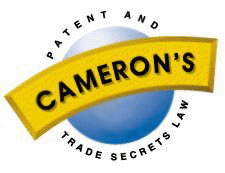
United Merchants and Manufacturers Inc. v.
A.J. Freiman Limited et al
citation(s): (1965) 47 C.P.R. 97 per Noel, J. (Ex. Ct.)
 |
United Merchants and Manufacturers Inc. v.
|
copyright 1997 Donald M. Cameron, Aird & Berlis
"Now, although in determining what the claims mean, the specification at large must be considered and the whole document read, this does not mean to use the language of Lord Loreburn, L.C., in the Ingersoll Sergeant Drill Co. v. Consolidated Pneumatic Tool Co. (1908), 25 R.P.C. 61 at p.83, that one can tolerate "The idea of allowing a patentee to use perfectly general language in the Claim, and subsequently to restrict, or expand, or qualify what is therein expressed by borrowing this or that gloss from other parts of the Specification...
It is indeed a cardinal rule for interpretation that when plain ordinary words are used, they should be given their plain ordinary meaning. It is also well established in patent law that, if a particular term is proven to have a special meaning in the art, unless such term has been defined in a dictionary sense in the disclosure, it should be given the meaning ascribed to it in that art.
Return to:
Cameron's IT Law: Home Page; Index
Cameron's Canadian Patent & Trade Secrets Law: Home Page; Index